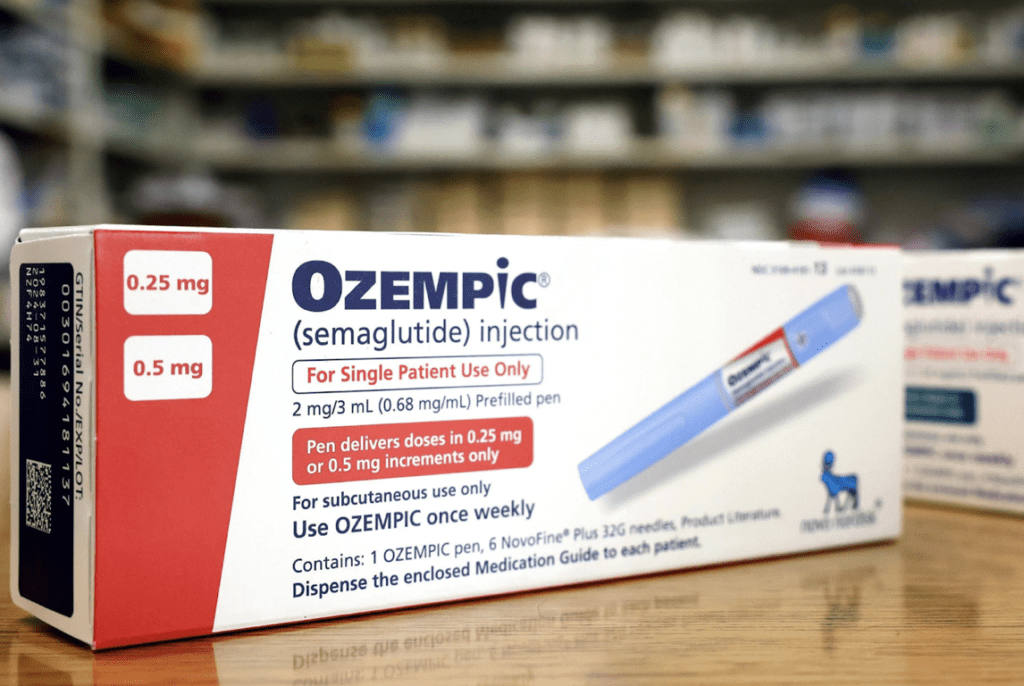Code Red. What’s Going on with Ozempic?

Unless you’ve been living off the grid for the past few months, you’ve probably heard a lot about Ozempic, the popular injection for Type 2 Diabetes. Ozempic, also known as semaglutide, is a once-weekly injectable prescription drug that lowers and stabilizes the blood sugar levels of Type 2 diabetics.
Now, you might be wondering why this seemingly unassuming medication has garnered so much buzz and attention, to the point where it’s flooding our news and social media feeds.
Well, the story starts here. If you know of Ozempic, then you’ve probably heard of Wegovy, its sister drug for patients struggling with obesity. While both contain similar properties, Wegovy has been FDA-approved for weight loss, while Ozempic has been FDA-approved for Type 2 diabetes.
Now, the problem is that users have been abusing Ozempic and Wegovy for their weight loss properties. Not only has this caused a drug shortage for people who actually need and rely on the drugs for their intended purposes, but the over-usage has also negatively impacted user health.
Read on as we break down this hot topic.
Unraveling Ozempic

Before we dig deeper into this topic, let’s explore Ozempic and how it works.
As mentioned above, Ozempic is a weekly injection to help Type 2 diabetics manage their blood sugar. The injection does so by supplying the body with Glucagon-like peptide 1 (GLP-1), a naturally produced hormone vital to blood sugar regulation. For people with Type 2 diabetes, this hormone secretion is impaired.
Ozempic works by mimicking the action of GLP-1 and stimulating the release of insulin, the hormone responsible for bringing glucose into our cells. GLP-1 also reduces appetite, making you feel fuller for longer after meals. This can benefit weight management, as it may reduce overall food intake and contribute to weight loss over time.
And did we mention that you only have to take Ozempic once a week? This has been a game-changer for people who might struggle with taking multiple daily medications. Using Ozempic is a breeze too. It comes in an easy-to-use pen you can carry wherever you go. Gone are the days of complicated routines or bulky equipment. Just a quick, simple injection and you’re good to go.
Challenges and Concerns

While Ozempic has proven to be a breakthrough in diabetes management, it hasn’t been without its share of challenges and concerns. And that brings us to our first talking point: over-usage.
“Elon Musk, when asked about how he looked “fit, ripped and healthy,” tweeted that he was taking Wegovy,” said an excerpt from a New York Times article. “Andy Cohen posted about Ozempic’s growing popularity. In September, Variety reported that actors and producers “are quietly singing the drug’s praises” on Signal, an encrypted messaging app. On TikTok, the hashtag #Ozempic has been viewed over 273 million times, with people alternately expressing shock over their supposed medication-induced weight loss and swapping stories about side effects. Thousands of people in Britain will soon be able to access Wegovy as well.”
While Ozempic has its benefits, it’s not the one-stop weight loss solution that people may think it is. The results are in the effort, as is described by Connecticut resident Edward Matias in an NBCNews article.
“This isn’t a magic bullet or pill,” Matias said. “It’s not the fountain of youth. It takes work and commitment. If people are asking for this med because they want to lose weight and think they can eat anything at all, they’re in for a rude awakening.”
And with over-usage of Ozempic and Wegovy comes shortages of Ozempic and Wegovy. That has caused some issues for people reliant on these drugs for Type 2 diabetes and weight loss.
“The US Food and Drug Administration first announced that Ozempic was in shortage last August,” said an excerpt from a CNN article. “Supply will likely be strained through mid-March, according to the FDA drug shortages database.
“Ozempic prescriptions in the US reached an all-time high in the last week of February, with over 373,000 prescriptions filled, according to a J.P. Morgan analysis of IQVIA data shared with CNN,” the article continued. That’s an increase of 111% compared with the same week in 2022. Of these, more than half were new prescriptions, according to a CNN review of J.P. Morgan’s analysis.”
Another primary issue with Ozempic and other GLP-1 RAs is the potential for gastrointestinal side effects.
As Ozempic slows down stomach emptying, some people may experience nausea, vomiting, diarrhea, or stomach pain. These side effects are usually temporary and tend to improve over time as your body adjusts to the medication. However, these symptoms can be bothersome for some individuals and may even lead to medication discontinuation.
Another concern that has been raised about Ozempic is the potential risk of pancreatitis, inflammation of the pancreas. While the risk is relatively low, it’s essential to monitor for any signs of abdominal pain that could be associated with this condition. If you experience persistent or severe abdominal pain while on Ozempic, it’s crucial to seek medical attention promptly.
The Final Verdict: Is Ozempic Worth It?

Now that we’ve explored the wonders and woes of Ozempic, you might be wondering – is it worth considering for managing type 2 diabetes? As with any medication, the answer depends on individual circumstances and preferences.
For many people, Ozempic offers significant benefits in blood sugar control, weight management, and the convenience of once-weekly dosing. Its ability to mimic the action of GLP-1 and improve insulin sensitivity can lead to enhanced diabetes management and, potentially, a better quality of life.
On the flip side, the potential for gastrointestinal side effects and the rare risk of pancreatitis are aspects to be mindful of when considering Ozempic. As always, it’s crucial to have open and honest discussions with your healthcare provider about your medical history, current health status, and any concerns you may have.
So, there you have it – Ozempic, the remarkable diabetes medication that’s stirring up excitement in the medical community. While Ozempic has its challenges, it’s an attractive option for many patients.
Remember, your health is a journey, and finding the proper treatment for you might take some time and adjustments. But with dedication, information, and support, you can step confidently towards a healthier and happier tomorrow.



